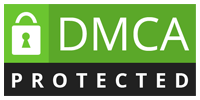Even with the current situation of the COVID-19, many cybercriminals are taking this advantage by sending emails to random users to infect their computers or network with malware, ransomware, and computer viruses.
These threats are a significant concern to every company and business, especially now that most of the workforce has been turned to a work-from-home environment. This gives cybercriminals an idea to create a less secure access point for cyber viruses, phishing attacks, and new methods while using the pandemic as leverage.
Protect yourself, your home, or business by learning cybersecurity. We at RCyberSolutions, offer courses and certifications through our online educational institute. Check our website now.
Since there is a lot of news and people would look for an update, users will more likely click links without checking the source.
Cyberattacks have increased since March of 2020, and most of the cases were caused by only one accidental click. It will give the hacker access to your computer data, network, and system, compromising your information security.
Here are some of the things you need to know about cybersecurity during this pandemic, how it is applied to work from home, and how to secure your network.
Remote Work
Technology has given us the ability to stay connected to our offices without being physically in the office. By using the network connection and different types of devices, we can work remotely off-site.
The challenge that every company faces from a work from home environment is network and information security. Cybersecurity training and orientations should be done before engaging your employees at WFH. Keeping them aware of the threats and risks that might come along would help you and your company undertakes a cyberattack.
Below are some of the basics on how to improve your network security when working at home.
WFH Digital Security
Internet Connection
Be wary of your internet connection and how you access it. Using a wired internet or ethernet connections is one of the most secure methods.
If you are outside the house, try not to use the public network as much as possible. Instead, you can use and connect to your mobile data network. Mobile networks can be done via tethering.
Get to know the different WiFi security. Using a WPA-2 with a password is more likely secure than a WEP access point.
Free and public network connections are the least secured.
Data Encryption
This process is where data and information are encoded to a cipher message that only the recipient can decode and read it.
This assures you and the receiver that sent, stored, and received information are well kept and private.
Virtual Private Network
VPN is an application and a browsing tool that allows users to hide their IP address, location, and browsing activity, making it difficult for other people, businesses, or governments to trace up your data or information.
By using a VPN, it enhances your network security when using an unsecured network connection.
Security Authentication
Always remember to have strong authentication security such as passwords and two-factor authentication.
Strong passwords can help secure your application’s access and the information within.
Two-factor authentication is a unique approach that doubles the security. By placing your password, you will require additional authorization from an external program or application.
Career Opportunity
Reliable Cyber Solutions, LLC., is a trusted firm and online institute that offers cybersecurity opportunities for you, everyone, professionals, and students. Our certified and professional staff can guide you with your learning and certifications. Visit our website now and check on our courses at RCyberSolutions.







